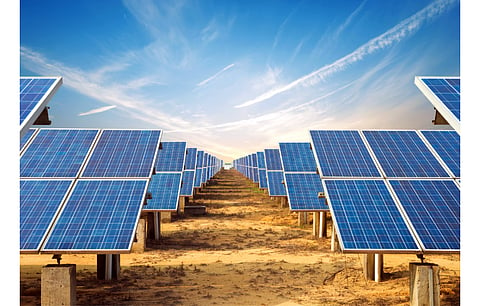

The European Commission (EC) has opened a public consultation to seek stakeholder opinion on main bottlenecks and barriers to investment in solar energy in the European Union (EU), as it prepares to publish its new strategy on solar later this year.
The consultation is made up of 26 questions, answers to which will help the EC assess how supportive or restrictive current measures are in allowing investment to flow into solar energy space. By solar energy, it refers to both solar photovoltaics (PV) and concentrated solar power (CSP).
Through this call, the commission wants to evaluate how to accelerate deployments through demand side measures to deliver on EU's 2030 renewable targets, ensure secure supplies of affordable and sustainable solar energy products through supply-side measures.
The said policy will also factor in actions that maximize socio-economic benefits along with potential and value of solar energy for wider society.
"An EU approach is needed to provide the right incentives to Member States with varying levels of ambition to accelerate, in a coordinated way, the energy transition towards a more integrated and energy-efficient energy system based on renewable generation. An EU-level strategy on solar energy will contribute to addressing this challenge," explains the commission.
The call is open for all, including public authorities, solar energy companies, energy communities, non-government organizations, research and innovation organizations and individuals who produce or consume solar energy, as well as general populace.
Launched on January 18, 2022, feedback will be accepted till April 12, 2022 and is available in all 24 EU languages. It can be submitted on the European Commission's website. Feedback received will be collated and a synopsis report published later.
The role of energy generated by solar PV panels is gaining ground in the European energy mix since in 2018, its output was 3.9% of the block's gross electricity output with 127 TWh.
It is also a significant employment generator as an industry since in 2018 it had 117,000 full time jobs, a number that the commission expects to have grown to nearly 175,000. By 2030, it is likely to provide 200,000 to 300,000 jobs in the EU, which is very conservative. European solar PV lobby association SolarPower Europe (SPE) wrote in its EU Solar Jobs Report 2021 that End of 2020, 375,000 people worked in the EU in solar – 150,000 direct and 207,000 indirect jobs with 80% of these jobs being associated with solar deployment (see EU Solar Job Report 2021). By 2025, the SPE report's medium term scenario predicts the creation of 584,000 EU solar jobs meaning an increase of 64%, and up to 1.1 million jobs in 2030.
Solar energy's proliferation—420 GW by 2030 to be specific—will be crucial to the block achieving the EC's proposed target of 40% renewables in the total electricity mix by 2030, according to the commission.
According to the European solar PV lobby association SolarPower Europe (SPE), EU installed 25.9 GW new solar PV capacity in 2021 with an annual increase of 34% led by Germany. In 2022, it expects the numbers to rise up to 35.7 GW under high scenario and 22.2 GW under low scenario (see EU Installs Record 25.9 GW Solar In 2021).
.png?w=50&fm=png)